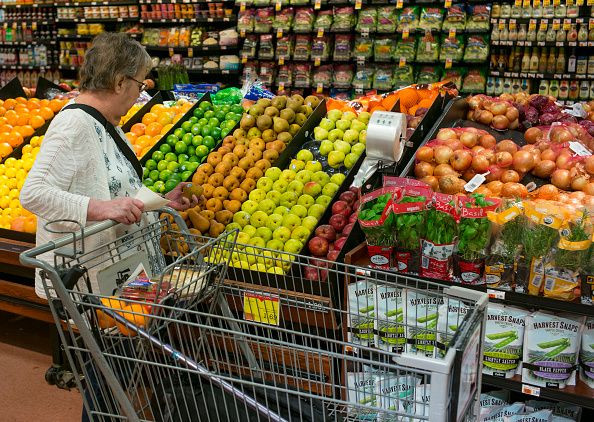Groceries Are Going To Start Costing You More: Here’s Why
Grocery bills are going to continue to rise in the coming months for consumers, according to the latest report from the Bureau of Labor Statistics.
Consumers have already begun to feel the pinch at the checkout line as the report indicated that there was a 0.6% increase in the consumer price index in March – the largest monthly increase in nearly a decade – and it doesn’t show any signs of slowing.
Fruit and vegetables increased in price by nearly 2% in March while meat, poultry, fish, and eggs rose by 0.4%, the index said.
Not only will consumers see an increase in food and essential items, but they're also feeling it at the gas pumps as fuel prices increased by 9.1% in March. The BLS said rising gas prices contributed to the higher cost of food.
Isaac Olvera, agricultural economist for supply chain software company ArrowStream, told NBC News that “We're still dealing with fallout from the pandemic,” adding that gas prices and transportations costs are getting passed on to consumers and driving up grocery prices for at least the rest of the year.
The spike in food prices follows the demand caused at the height of the pandemic during state lockdowns, which forced a supply chain disruption as producers scrambled to keep up with consumers’ need for staples. Prices increased and never settled, and now consumers are noticing the price difference in their household budgets.
Examples of cost differences can be seen with bacon and hot dogs, which are expected to undergo a shortage in the summer months. Pork prices have escalated, and now the average price of a pound of bacon has increased from $4.72 in January 2020 to $5.11, according to NielsenIQ as reported by NBC News.
Ground beef and bread are also suffering a similar fate as the meat is up from $5.02 to $5.62 a pound and the bakery item is up to $2.66 a loaf from $2.44, according to NielsenIQ.
The location of consumers can also impact how much more they are paying at the grocery store. Many grocers have cut out promotions and coupons to accelerate profit margins and manage their overall stock since the March 2020 stockpiling occurred during the pandemic, NBC News said.
Paper-product makers such as Kimberly-Clark say they will raise the price of some of its products, such as diapers, toilet paper and facial tissue, as it faces an increase in material costs. J.M. Smucker has already raised the price of its Jif peanut butter due to low peanut yields, and General Mills said it plans to increase prices in the coming months.
Supply shortages will also drive price increases as instant coffee and toilet paper are expected to be in short demand due to limited space on container ships for pulp materials.
On Tuesday, the Federal Reserve responded to the reports of rising prices by saying it is ready to respond to any indications of inflation excdeeding the 2% mark.

© Copyright IBTimes 2025. All rights reserved.





















